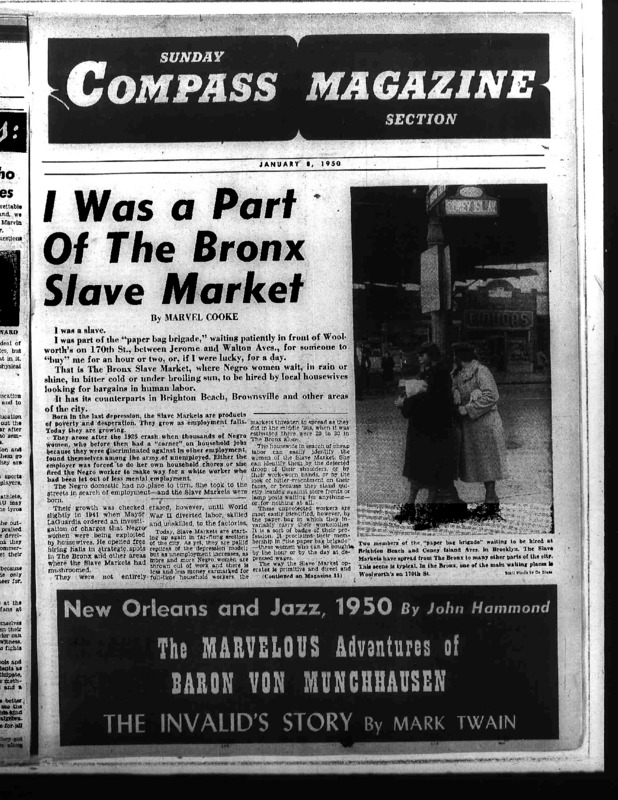(MINNEAPOLIS) — Marvel Cooke, a prominent African-American journalist during the Harlem Renaissance, dedicated her career to fighting systemic injustice through various writings about the working and living conditions of black America. As a writer, she detested black newspapers that often succumbed to sensationalistic crime stories. Instead, she sought to expose the harsh realities of racial discrimination and inequality faced by African Americans and advocated for their rights and dignity.
In collaboration with activist Ella Baker, Cooke produced a series of four articles called “The Bronx Slave Market, in the late 1930s, for the NAACP’s journal, The Crisis. This exposé uncovered the exploitation of Black domestic workers in New York and revealed the hidden world of labor inequality.
Cooke’s four-part series provided vivid imagery of the establishment of “slave markets” throughout New York City. These markets were places where black women stood on street corners and were “bought” for the day by white women who hired them for housework. Cooke compared this phenomenon to southern plantation owners buying slaves.
In this setup, the workplaces were constantly changing, and the competition among the workers caused wages to be very low. As these women had no bargaining power, they were paid only fifty cents an hour, even though the minimum rate established by the New York Employment Service was twice that amount.
Throughout this series, Cooke immerses herself in the lives of Black domestic workers to gain a firsthand view of their exploitation. She wrote, “I was part of the Bronx Slave Market long enough to experience all the viciousness and indignity of a system which forces women to the streets in search of work. Twice I was hired by the hour at less than the wage asked by the women of the market. Both times I went home mad – mad for all the Negro women down through the ages who have been lashed by the stinging whip of economic oppression.”
Cooke wrote from her personal experiences as a member of the “paper bag brigade” and described the strenuous work, the racism she encountered, and the difficulty in obtaining necessities such as transportation and food due to an informal wage agreement. In her conclusion, Cooke emphasizes the importance of unionization and the struggle to eliminate these markets.
Cooke’s article focuses on revealing systemic oppression and advocating for Black domestic workers. Her writing style leaned towards a more literary, but bold, straightforward approach as opposed to the standard objective journalism style. Her writing not only conveys stark visuals of exploitation but also emotionally engages readers with victims, like storytelling.
Cooke’s advocacy is rooted in an unwavering commitment to truth and a dedication to holding societal values up to the light for reflection. Her writing stands as a testament to the ethical responsibility of journalists to address issues that strike at the core of human rights and dignity.
Cooke’s reporting on the Bronx Slave Market is a powerful example of the moral obligation of journalism. Rather than violating journalistic ethics, Cooke’s work aligns with the critical role of journalism in maintaining a commitment to justice while seeking the truth. Through her reporting, Cooke challenges readers to confront uncomfortable truths and contributes to a broader dialogue on social reform.
“The Bronx Slave Market” serves as a powerful example of the importance of advocacy journalism in confronting systemic injustice. Cooke’s writing goes beyond simply observing and reporting; instead, she becomes a catalyst for change. Navigating the ethical considerations of advocacy journalism can be challenging, but Cooke’s work demonstrates the potential of journalism to advance justice and promote social progress.


